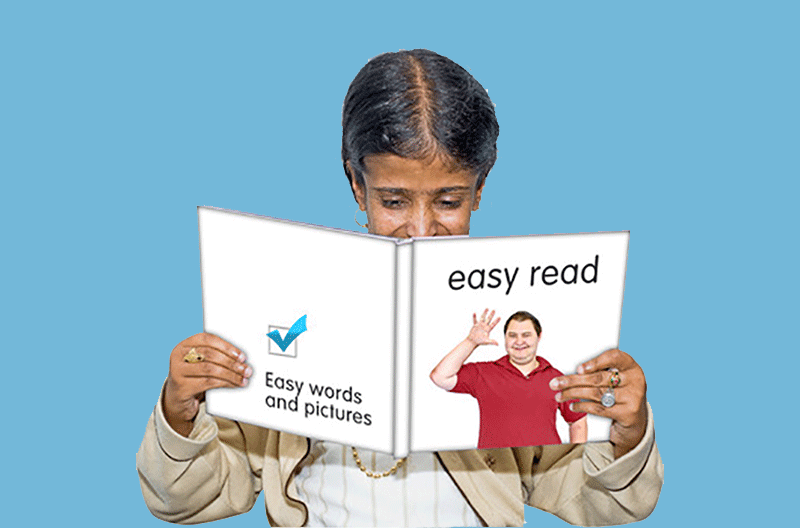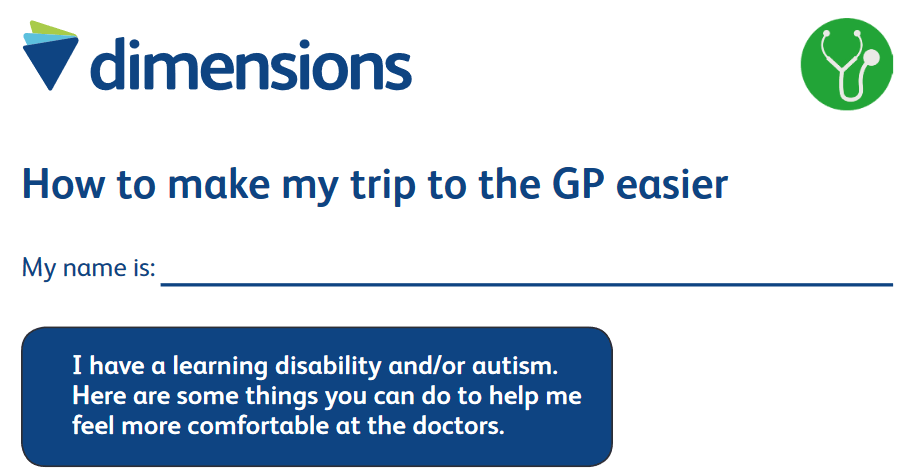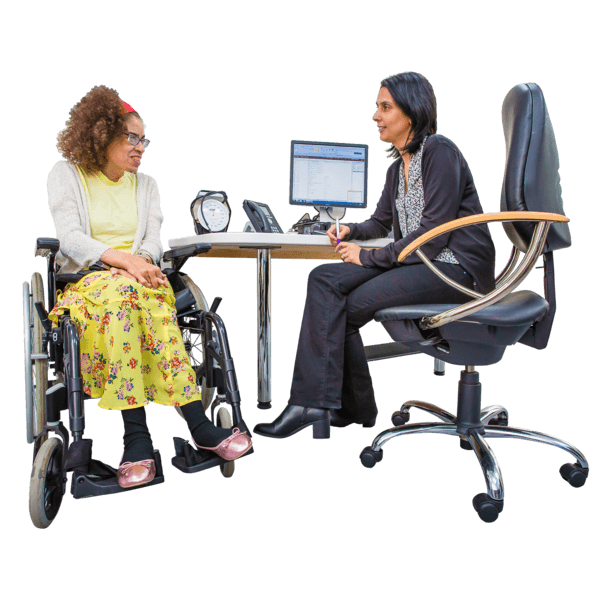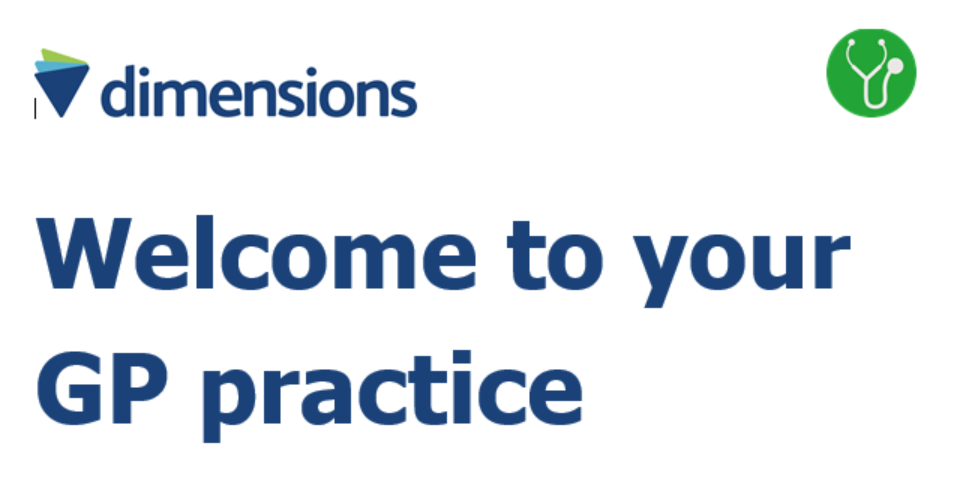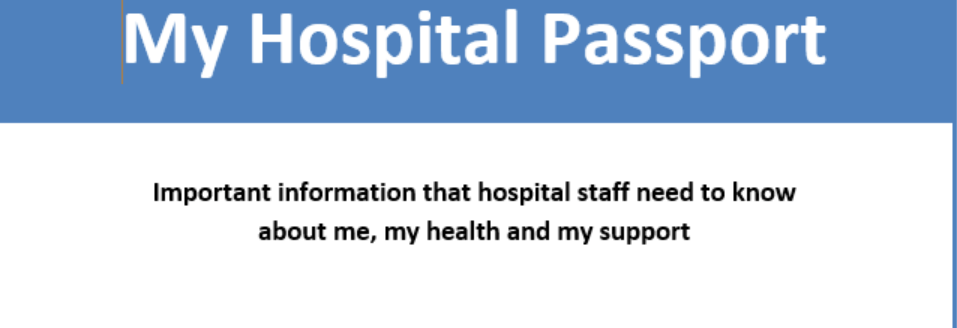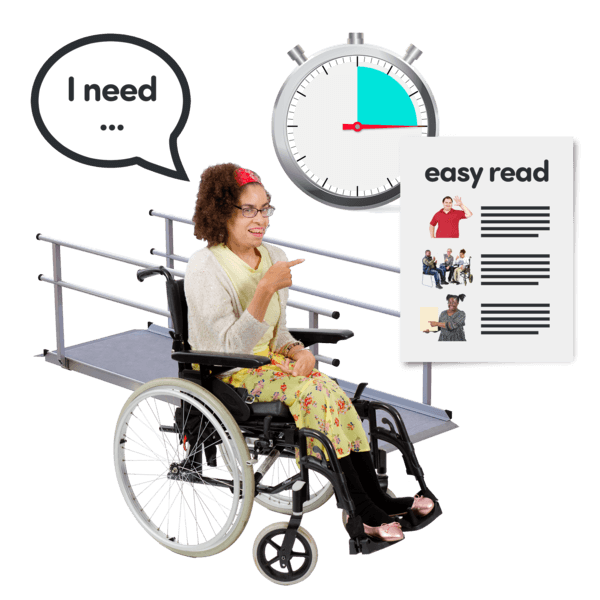For carers: How to get the most from appointments
As a support worker or carer, you help advocate for the person you support. Sometimes you will need to tell the doctor what to check for and how to make reasonable adjustments.
You can also prepare information in advance so the GP or nurse has everything they need to get a thorough health history and understanding of their patient.
Records and documents
There are a number of records and documents you might use as part of the person’s support plan. These can be very useful for doctors and gives them important information without needing to remember it when they ask.
Think about making sure these documents are up to date and ready to share with the doctor or nurse:
- Summary Care Record
- Medication logs
- Bowel movement logs
- Health Action Plan
Reasonable adjustments
If the person you support needs some reasonable adjustments to help make their experience more comfortable and accessible remember that it is their legal right.
Visit this webpage to find out more about reasonable adjustments and start making a list of things to request from the GP surgery staff. This is also linked at the bottom of the page.
You can also write down the reasonable adjustments that will help on the ‘Tips to help me at the doctors’ resource linked above.
Take communication aids
If the person you support doesn’t use spoken words to communicate or uses communication aids and prompts take them to the doctors with you. If there are healthcare specific aids (such as picture cards) think about what you might need and take them along. Make sure the doctor understands how to best communicate with the person you support and makes adjustments to support this.
Preparation is key
Sometimes the anticipation of a healthcare appointment is the most stressful part. Ask the GP surgery staff to provide you with information about what will happen on the day and what to expect during the appointment.
If they have put in reasonable adjustments then information about these and what to ask about when you arrive is useful.
Ask them to download our social story template (also linked at the end of the page) and personalise it for their practice. You can then use this to start preparing for the journey.
Some practices might be able to provide information in Easy Read too, and other accessible formats such as large fonts and braille can also be requested.
Keep in mind that GP practices are under-resourced and they might not be able to accommodate fully. If this is the case you can support them to produce some accessible information and even ask them to visit our website to find out about becoming an accessible practice.
Help them understand health inequalities
People with learning disabilities face some shocking health inequalities that are leading to premature deaths and serious health issues.
Help them understand that:
- People with learning disabilities and autism are at risk of overmedication: everyone on psychotropic drugs should have a six monthly multidisciplinary
review. - People with learning disabilities and autism are less likely to access cancer
screenings. - People with learning disabilities are at risk of long-term constipation which can be fatal.
- People with learning disabilities are entitled to an Annual Health Check when they are on the Learning Disability Register.


